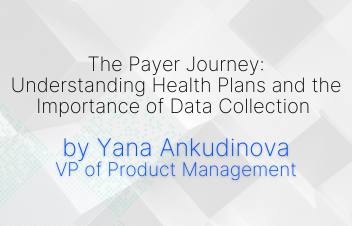I recently had the pleasure of speaking with Beth Friedman, Senior Partner at FINN Partners, as a guest on the FINN Voices show on Healthcare NOW Radio. The topic was innovation in payer and provider data exchange.
As we talked about the challenges between payers and providers, one ray of hope emerged. Technology and interoperability have advanced to the point that payers and providers can now share data in more automated, intelligent, and streamlined ways. This saves time, money, and resources for both parties.
By using new clinical data exchange technology, providers discover new ways to reduce administrative burden with their payer and health plan partners. And they can reduce payer-provider friction along the way. However, things are not yet perfect.
Better, But not Perfect
During the radio show we touched on a few messy pieces that still exist between payers and providers despite the great strides made toward interoperability. These include:
- Unreliable access to data. Local systems store different information in different places, so access to the information needed across environments and platforms is unreliable.
- Inconsistent data terms. Normalization is needed to improve clinical data exchange.
- Suboptimal speeds. Both parties spend time parsing through the information requested.
- Redundancy. Digital information is printed, then reentered, leading to duplication of information and energy.
All of this brought us to an important point: Payers and providers need each other, and they have to work together. But the relationship is complicated. At MRO, we are working diligently to find the fix.
KLAS 1000 Points of Light Success
MRO recently participated in a KLAS Points of Light payer/provider case study highlighting the work of MRO, CareFirst BlueCross BlueShield, and LifeBridge Health, building a clinical data exchange to ensure all parties have pertinent information needed to make informed decisions for the patient’s care. The study started with two pain points to be addressed: 1) siloed patient data that makes it hard for providers to have a complete clinical picture and 2) the limited view of clinical data provided to payers, hindering their ability to hit their HEDIS quality metrics. The outcomes achieved for both CareFirst BlueCross BlueShield and LifeBridge Health were remarkable.
CareFirst’s annual HEDIS quality measures improved an average of 63%. And the MRO-supported clinicians within LifeBridge Health outperformed the control group in A1C control checks, blood pressure control for diabetic patients, retinal eye checks, blood pressure control, and colorectal screenings.
More Hope on the Horizon
Clinical data exchange technology is becoming more prevalent and easier to use. As more digital natives enter healthcare and technology laggards age out of the workforce, healthcare professionals are more comfortable with interoperability and data exchange. The industry at large is moving toward wider technology adoption.
We saw optimism around this—and health technology and health IT in general—at HIMSS23. There is renewed excitement coming out of the pandemic and broader embrace of digital health technology. Going beyond traditional EHRs and other legacy systems, intelligent tools such as ChatGPT, artificial intelligence, machine learning, and more were some of Chicago’s hottest topics.
Now we need to take that influx and figure out how to make it all work together for better payer-provider relationships. And I, for one, am eager to see what’s next.
To listen to our full podcast conversation, be sure to listen here.



